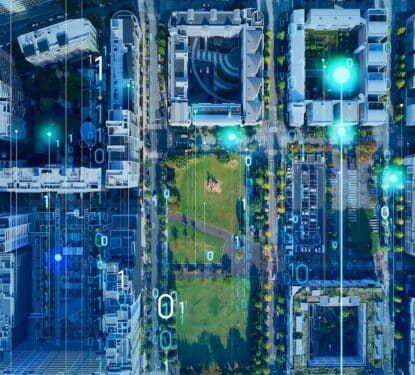“There is a rot at the core of how construction is procured and it begins with clients and main contractors. We are already at the bottom, as can be seen in cruel black and white by the failures of large main contractors throughout 2023. Something has to change!” proclaimed Mike Wharton, chief executive of Complete Roofing Systems in the UK.
In his March article, Wharton compared the relationship between construction’s main contractors and its specialists to a scene with the Devil in the 1999 Arnold Schwarzenegger film ‘End of Days’.
He went into some detail on the many issues that exist in the construction procurement process from the late introduction of specialists to the unreasonable demands from main contractors. He noted how the risk inevitably ends up on the specialists and warned the construction sector that enough is enough.
“There have been some high-profile main contractor administrations and receiverships in 2023 and no doubt there will be more in 2024,” Wharton continued. “If you don’t start to change the usual narrative with your clients, and you continue to push all risks down the chain, we simply won’t work for you.”
Wharton’s words from the roofing segment directly echoes what we have been saying in the smart building segment for a long time. It is only after all of the foundational processes are complete that technologies such as Building IoT platforms (BIoT) enter the discussion for the first time.
“The BIoT is only introduced after core design and planning activities are finished. If our buildings aren’t as smart as they should be by now, then this may be the primary reason,” we said in a 2020 article.
The underlying issue that Wharton addresses is that design and planning considerations for the specialist elements of construction are being tackled by people with limited specialist knowledge. So, even if the specialist concepts command significant stakeholder enthusiasm and sizable budgets, the specialist systems would still have to adapt and compromise to the plans in place. This will inevitably cause delays, increase costs, and limit the building’s potential.
“The typical building design and construction processes followed by architects and construction professionals do not consider smart building systems until the later stages of design. By this point in the process, key delivery contractor relationships have already been established, the conceptual design is complete and the space design is already specified,” explains our Internet of Things in Smart Commercial Buildings research.
“By following this traditional process, the ability for IoT systems vendors, systems integrators, and smart building consultants to have any kind of tangible influence over the overall building design is extremely limited. They have very limited opportunities to influence overall design specifications or to argue the case for the value-contribution of particular IoT technologies or data analytics approaches,” our report continues.

Construction Specialists & Core Building Technologies
“Take us with you to see your client; we can help you win the job. We can talk about the nuances of our trade and what may hold us up on the project, or specific issues to do with materials availability, imminent price rises, market capacity etc.,” Wharton advises. “We can do this because we are specialists in our field; it is our job to know, and we do know.”
Considering all the specialist elements of the modern smart building, the argument makes sense. From the beginning of the design and bidding process, specialists can outline the limits of design ideas in their domains and also inspire core design concepts through their areas of expertise. Early introduction leads to more successful bids, improved designs, happier stakeholders, reduced delays, minimized risk and, ultimately, better buildings.
“BIoT specialists need to work collaboratively across the construction supply chain, engaging with clients, contractors, consultants and architects, to ensure that everyone understands the value of smart technology and how smart systems can be leveraged to deliver improved outcomes in terms of efficiency, sustainability, flexibility, connectivity, and occupant comfort,” our study continues.
Considering the growing centrality of energy efficiency, health, wellbeing, and the occupant experience in the core business strategies of major real estate developers, maybe it is time we stop thinking of smart technology as a specialism but rather as a core building principle. Every building in the future will have to be green, smart, and healthy, and the sooner we prioritize smart technology in the design and construction phases, the sooner we reach that future.



